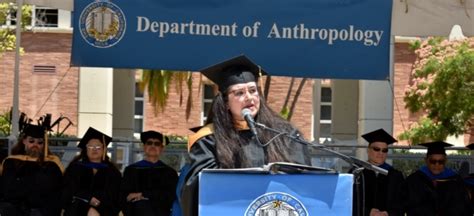Nestled within the bustling campus of UCLA, the Department of Anthropology stands as a beacon of academic excellence and groundbreaking research. Its esteemed faculty, cutting-edge facilities, and diverse student body foster an environment where curiosity flourishes, and knowledge is unearthed.

Unraveling the Human Experience through Anthropology
Anthropology, the study of humanity across time and cultures, encompasses a vast spectrum of subfields. From the microscopic analysis of human remains to the intricate tapestry of social interactions, anthropologists seek to understand the complexities of human existence.
A World-Class Faculty
The department boasts a distinguished faculty of over 40 world-renowned scholars. Their expertise spans the anthropological spectrum, from archaeology and biological anthropology to sociocultural anthropology and linguistic anthropology. This diverse faculty ensures students receive a comprehensive understanding of the discipline.
Cutting-Edge Research Facilities
UCLA’s anthropology department is home to state-of-the-art research facilities that empower students to push the boundaries of knowledge. These facilities include:
- The California Center for Archaeology, a hub for archaeological research and field training
- The Cotsen Institute of Archaeology, renowned for its collections and research on pre-Columbian Mesoamerica
- The Fowler Museum at UCLA, showcasing a diverse array of art and artifacts from around the globe
A Diverse Student Body
The anthropology department at UCLA welcomes students from all backgrounds and perspectives. With over 600 undergraduate and graduate students, the department fosters a vibrant and inclusive learning community. This diversity of perspectives enriches classroom discussions and research endeavors.
Benefits of Studying Anthropology
Studying anthropology at UCLA offers a plethora of benefits:
Sharpens Critical Thinking Skills: Anthropology trains students to approach the world with a critical eye, question assumptions, and evaluate evidence.
Enhances Problem-Solving Abilities: Anthropologists develop the ability to solve real-world problems by examining human behavior and cultural practices.
Expands Cultural Horizons: Anthropology fosters an understanding of diverse cultures and worldviews, promoting empathy and global awareness.
Career Opportunities
An anthropology degree from UCLA opens doors to a wide range of career opportunities in academia, government, non-profit organizations, and private industry. Graduates are equipped with skills in:
- Research and Analysis
- Communication and Public Engagement
- Cross-Cultural Collaboration
- Project Management
Common Mistakes to Avoid
When applying to or studying anthropology at UCLA, it is essential to avoid these common mistakes:
- Underestimating the workload: Anthropology is a demanding discipline that requires significant reading, writing, and research.
- Ignoring office hours: Make use of faculty office hours to clarify concepts, discuss research ideas, and build relationships.
- Neglecting fieldwork: Fieldwork is a crucial component of anthropological research that provides hands-on experience.
Why Anthropology Matters
In an interconnected and rapidly changing world, anthropology plays a vital role in:
- Preserving Cultural Heritage: Anthropologists document and analyze cultural practices to prevent them from disappearing.
- Promoting Social Justice: Anthropology sheds light on social inequalities and provides insights for addressing them.
- Understanding Human Origins: Research in biological anthropology helps us trace our evolutionary history and explore the diversity of human life.
Frequently Asked Questions (FAQs)
1. What is the average class size in the anthropology department?
Class sizes vary depending on the course level and topic. Undergraduate lecture courses typically have 50-100 students, while graduate seminars have 10-20 students.
2. What are the most popular majors in the department?
The most popular undergraduate majors are Anthropology, Archaeology, and Socio-Cultural Anthropology. The most popular graduate programs are the MA and PhD in Anthropology.
3. What research opportunities are available for students?
The department offers numerous research opportunities for both undergraduate and graduate students. Students can participate in faculty-led research projects, conduct their own independent research, and apply for research grants.
4. What career paths are open to graduates with an anthropology degree?
Graduates with an anthropology degree pursue careers in academia, government agencies, non-profit organizations, and private companies. Common job titles include:
- Museum Curator
- Archaeologist
- Policy Analyst
- Cultural Anthropologist
- University Professor
